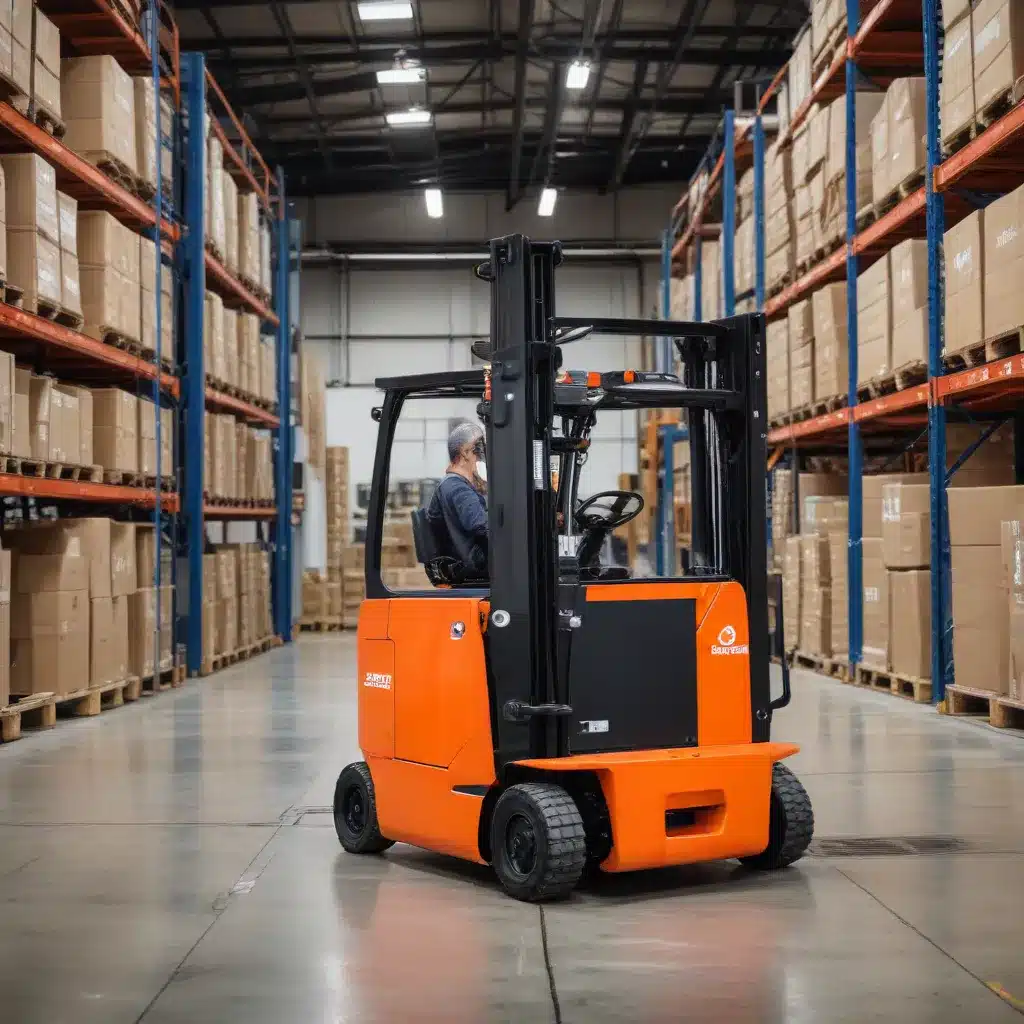
As a seasoned industry expert in forklifts, warehousing, and logistics, I’m excited to delve into the transformative potential of electric forklifts. In today’s rapidly evolving business landscape, where efficiency, sustainability, and cost-effectiveness are paramount, electric forklifts are emerging as the forefront of logistics solutions.
The Paradigm Shift Towards Electrification
The transportation sector, including the forklift industry, is undergoing a profound shift towards electrification. This transition is driven by a multitude of factors, including the increasing demand for eco-friendly solutions, advancements in battery technology, and the need to reduce the environmental impact of traditional internal combustion engine (ICE) forklifts.
Fuel Economy and Cost Savings
One of the primary benefits of electric forklifts is their remarkable fuel economy. According to the AFDC, all-electric vehicles (EVs) and plug-in hybrid electric vehicles (PHEVs) can achieve impressively high fuel efficiency, exceeding 130 miles per gallon of gasoline equivalent (MPGe) and consuming as little as 25-40 kWh per 100 miles. This translates to significant fuel cost savings for businesses, especially when considering the rising costs of traditional fossil fuels.
Emissions and Environmental Impact
Another key advantage of electric forklifts is their cleaner environmental profile. All-electric forklifts produce zero tailpipe emissions, while PHEVs generate no emissions when operating in all-electric mode. This not only contributes to improved air quality within the warehouse or facility but also aligns with the growing demand for sustainable logistics solutions. The life cycle emissions of an electric forklift are largely dependent on the regional electricity grid, with areas using low-polluting energy sources demonstrating a significant emissions advantage over conventional ICE forklifts.
Infrastructure Availability and Charging Convenience
The flexibility of electric forklifts is another compelling aspect. As the AFDC highlights, EV charging stations are becoming increasingly prevalent, with over 53,000 publicly accessible charging ports available across the United States as of 2023. This expansive charging network allows for convenient fleet charging, both at the workplace and during overnight periods, optimizing the operational efficiency of electric forklifts.
Addressing the Challenges of Electric Forklifts
While the benefits of electric forklifts are numerous, it’s important to address the potential challenges and concerns that businesses may face when transitioning to this technology.
Battery Life and Replacement Costs
One of the primary considerations is the battery life and replacement costs. According to the AFDC, electric vehicle batteries are designed for extended use, with manufacturers often offering 8-year/100,000-mile warranties. However, battery degradation over time can be a factor, depending on factors such as climate, driving patterns, and thermal management. Predictive modeling suggests that today’s batteries may last 12 to 15 years in moderate climates, but 8 to 12 years in extreme temperatures. While battery replacement costs are not yet widely published, some manufacturers offer extended warranty programs to help manage this expense.
Upfront Costs and Incentives
The initial purchase price of electric forklifts can be significantly higher than their ICE counterparts. However, as the AFDC notes, these upfront costs can be partially offset by fuel cost savings, federal tax credits, and various state and utility incentives. Additionally, as battery technology continues to evolve and production volumes increase, the pricing gap is expected to narrow over time.
Charging Infrastructure and Accessibility
While the availability of public charging stations is on the rise, the accessibility and placement of these charging facilities may still present challenges for some businesses, especially those with distributed or remote operations. The AFDC recommends that companies work closely with their local Clean Cities and Communities coalitions to identify and access available incentives and resources for installing on-site charging infrastructure.
The Future of Electric Forklifts: Industry Trends and Innovations
As the logistics industry continues to evolve, the adoption of electric forklifts is poised to accelerate. Industry experts and organizations like the Electric Power Research Institute (EPRI) foresee numerous innovations and advancements that will shape the future of this technology.
Advancements in Battery Technology
One of the key areas of focus is the ongoing development of battery technology. According to Deloitte’s analysis, battery costs are expected to decline significantly in the coming years, driven by improvements in chemistry, cell design, and manufacturing processes. These advancements will not only improve the performance and range of electric forklifts but also make them more cost-competitive with their ICE counterparts.
Integrated Charging and Fleet Management Solutions
As the electric forklift ecosystem expands, we’re witnessing the emergence of comprehensive charging and fleet management solutions. These integrated platforms often include features such as remote monitoring, predictive maintenance, and intelligent load-balancing to optimize energy usage and enhance the overall efficiency of electric forklift operations.
Synergies with Renewable Energy and Grid Integration
The marriage of electric forklifts with renewable energy sources and smart grid technologies presents exciting opportunities for the logistics industry. By leveraging on-site solar, wind, or other renewable energy generation, businesses can further reduce their carbon footprint and insulate themselves from fluctuating fossil fuel prices. Additionally, the integration of electric forklifts with the electrical grid can enable bidirectional charging, allowing for energy storage and grid-balancing capabilities.
Embracing the Electric Forklift Revolution
As we look to the future of logistics, the electric forklift stands as a beacon of sustainability, efficiency, and cost-effectiveness. By embracing this transformative technology, businesses can not only reduce their environmental impact but also gain a competitive edge in an increasingly dynamic and demanding industry.
I encourage you to explore the resources available on Forklift Reviews to dive deeper into the world of electric forklifts, discover the latest industry trends, and connect with experts who can guide you through the transition to this exciting new era of logistics. Together, we can power the logistics of tomorrow and shape a more sustainable, cost-effective, and future-ready industry.

